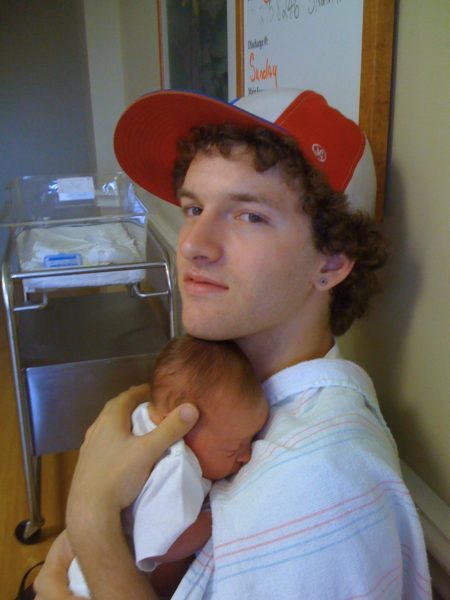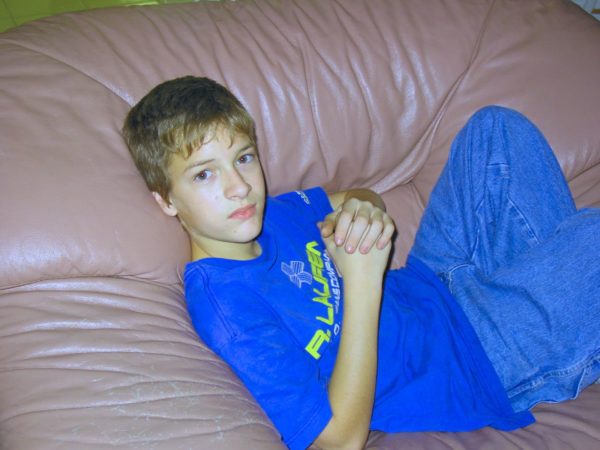So many of us let the world beat us down. Some do that constantly; some do that from time to time. So this wonderful post will help us all. Usually I have more of an introduction but you need to dive int these words of Erik right away. Plus I don’t have anything to say. I’ve been swamped with housework since Maria has been in the hospital. Besides the usual stuff, I’ve been cleaning all of the shutters in the house (and there must be hundreds) and I broke the tilt rod on one of them The louvers are scattered everywhere, a testament to my clumsiness. Well, I have to vacuum and change the wash now.
Me: Let’s discuss self-esteem issues. A low self-esteem is behind so many things: Lack of trust in others, feeling stuck, resentment, jealousy, isolation, shame, depression, anxiety, greed, a lack of abundance, approval seeking, problems reaching goals, a lack in confidence, problems with emotional resilience and relationships. I could go on, and many of these feed into the others.
Erik: It’s about being blind to seeing yourself, to really see yourself.
Me: Is that related to not trusting yourself.
Erik: Yeah. That’s why you wouldn’t see yourself in the first place, and there are a lot of other things that can lead you to that place of distrust like experiences you’ve had and taken as gospel. You’ve believed what other people have said in your immediate family and outside of it.
Me: Like peers and teachers.
Erik: Everybody. What you watch on the news; what you watch for entertainment, all that shit. It’s about being blind to yourself because you’re not looking inward. You’re looking outward.
Me: That’s the basis for my first book, Raising Children to Think for Themselves. We’re raised to become approval seekers. We’re pack animals, so we need this sense of belonging, and it can be by trying to appease the pack to get acceptance or by contributing something meaningful to the pack. The first requires external direction, following an external compass, while the last allows you to follow your internal compass.
Erik: That’s right, Mom. One is coming from a place of fear, and the other comes from truly accepting yourself and acting according to how you accept yourself to be. Being yourself will create positive things for the pack. So one is based in love and the other is based in fear.
Me: Love of self.
Erik: Yeah.
Me: It seems like when you distrust yourself, you start to distrust others.
Erik: Yeah, and sometimes the distrust comes from distrusting others first. Take this as an example. Say there’s someone who’s always been free with their words. No filter. They just say whatever the fuck is on their mind. In the process, they notice that people get hurt. That makes them stop speaking their mind to avoid hurting people. That’s admirable because you don’t want to hurt anyone, but what you don’t realize is that, by holding in what you’re thinking, you end up internalizing, and now you’re hurting yourself.
Me: What does that have to do with self-esteem, self-love?
Erik: That’s because you don’t trust yourself, so you’re not accepting yourself as who you are. You inhibit being yourself.
Me: I don’t understand how that can create self-esteem problems?
Erik: That suppression, that not accepting yourself. You’re not allowing yourself to have that opportunity to learn how to create filters. By not seeing it as a potential lesson, you start beating yourself up. You can speak your mind, but you can do it in a way that doesn’t cause suffering. You learn how to be diplomatic. And you can speak your mind but do it with a tone and with body language that won’t hurt the other person. What might have otherwise come off as an insult doesn’t. You’re still allowing yourself to be you. You’re following your inner compass. In some cases when you speak your mind in this way you’re actually building your self-esteem up. You’re nurturing yourself. To speak in general terms, you protect your self-esteem by seeing everything that might hurt you as an opportunity to learn something valuable. You adapt. By being honest with yourself, you expand your awareness and evolve.
Me: Okay.
Erik: When you follow an external compass, you give your power away. You become disempowered, which is the cause of all self-esteem issues. In the example I used, that person retracted. He inhibited himself. He gave away his power to the other person. You become the other person’s bitch. You become the external world’s bitch.
Me: I see a lot of people with self-esteem issues who don’t want to be wrong. They always want to be right.
Erik: That’s about being afraid of vulnerability. That’s behind a lot of self-esteem problems.
Me: Yeah, and when you’re afraid of that, you have a hard time expressing your emotions. You’re afraid you’re going to be slapped down.
Erik: Yeah, and sometimes that turns into isolation and loneliness. You’re disconnect from the world around you when you don’t allow yourself to express your feelings in the way that you need to. It doesn’t have to be literal isolation like closing yourself up in your house. It can also manifest as being withdrawn when you’re around people. Fuck I know about this real well. I would be sitting in a room with people, and I would be like a wallflower. If someone could see my body language, they could tell that I was tense.
Me: You looked mad, sometimes.
Erik: Right, and that was an unconscious message to stay the fuck away.
Me: So you wouldn’t be hurt.
Erik: Right. It was also me telling the world that I’m not protected in some way. Also, I felt angry with myself for not being able to be open.
Me: Yeah. Why did you become that way? What happened? Was it the taunting from peers, your learning difficulties?
Erik: Some of it was that, but it was also that I was very empathic. I could pick up on all the shit that everyone around me were holding on to. I would take it as my own shit.
Me: Ah!
Erik: I’d try to put a reason to that unconscious feeling to explain it like, ‘They don’t like me. I’m nothing.’ I had that whole dialogue going on in my head.
Me (sadly): Aw.
Erik: I beat myself up.
Me: Yeah, I saw that.
Erik: Then I would make choices that would cause my self-esteem to get even worse. People who have to deal with this don’t see that until they reach rock bottom. In my case, that was taking my own life. In terms of humanity, so many of us come here to awaken through the process of suffering and pain, and we get to the point where we won’t want to put up with it anymore. The thing that we need to realize is that one: it helps us figure out what our boundaries are. How low can we go; how high can we go? If you don’t know your extremes, then you don’t know where you middle is. Two: It’s a lesson in getting yourself to embrace your power, to express your power because your power lies in your ability to choose. It lies in your ability to say, “You know what? I’ve had enough. Fuck this shit!” At that point, you put on your confidence coat and take your power back. You think, “I deserve more than this shit.” After you hit rock bottom where you’re stripped of all ego, you can build yourself back up in the way you want. You can redefine yourself.
Me: Yeah.
Erik: My rock bottom was my death. I was too afraid of my own power in life.
Me: Why?
Erik: Because I felt these extremes of highs and lows. People label that bipolar disease, but eventually we’ll come to realize what bipolar disease really is. It’s about a spirit trying to figure out what its boundaries are so they can get to their middle and achieve balance. But, for me, it was really, really scary. I had all this infinite potential for joy, which I could have at times, and people might label as mania, but other times I’d fall into this pit that was deeper than Hell. That scared the shit out of me because I’d think to myself, ‘If I can feel one way, then I have the potential to feel the other, and I never knew which extreme was going to happen when. That fucked with me. I had such powerful highs and lows and I didn’t know how to stay in the middle of that. And I had that OCD, you know, Mom. That was the way I channeled my anxiety. I was looking at everything through my mind’s eye rather than my heart’s eye. If I had only swum in the ocean of the heart’s eye, I could have found my middle.
Robert: You’re being awkwardly poetic today, Erik.
Erik: My being obsessed with one thing after the other after the other gave me this calmness. Now I know that if you see things with the mind, you’ll never reach the middle because the mind was designed to piece everything together to create this illusion of form, and form is always being created and dissolving away.
Me: What do you mean by “form?”
Erik: Like a car, a motorcycle and other material world stuff
Me: Okay.
Erik: So those things will keep coming and going and coming and going, but the heart isn’t’ that way. The heart is coming from the place of emotions, and emotions are perpetual. They may take different forms like shades but they stay the same, like love is always love.
Me: So the heart, which is where you find your middle, peace, whatever, occurs when you have that empowerment which gives you a good self-esteem, and disempowerment is what gives you a lousy one? I don’t know what I’m saying.
Erik: I know what you’re saying, Mom. It’s about not being afraid of what you’re feeling. It’s about fully embracing that side of you that you can’t see externally. It’s inside of you. It never goes away, even when you cross over. Feelings are feelings, but physical experiences, things that we manifest, are constantly changing. Here, I can look anyway I want, and that’s a clue that form is never consistent. It’s like the rain. Emotions create the form that allows us and our world to constantly change. Think of raindrops as the form. It goes into the ocean, then eventually it’ll evaporate and turns into a mist, think of that as emotion. That doesn’t mean the rain went away—
Me: So emotions create form?
Erik: Yeah they do. The heart creates form, and the mind is just there to create frame after frame that creates the illusion that we’re moving through things. So ultimately, the basis of everything is emotion.
Me: So, the heart is the ocean and—
Erik: No, the heart is the water that has evaporated into that mist. The raindrops are the form. One you can touch. You can see and touch the raindrops, but you can’t really see or touch the mist.
Me: So does the ocean represent anything? What is the mist creating?
Erik: Remember, Mom? It’s creating the potential for raindrops or form. Emotions are behind the creation of all form. It’s the mind that creates the illusion of form.
Slow learner today. Sigh.
Erik: When the forms go away the rain evaporates again, it starts changing back into the thing that created it in the first place, emotion. The emotion itself is everywhere, so then, depending on the situation and how things interact, it can create something new. The mist might interact with the sun or other weather conditions are creates another type of form, maybe snow or sleet.
Me: Can you give me a real life example.
Erik: Yeah, I have a great one. Emotions are different flavors of love. Love is all the shades of emotions in one. If you take all the colors in the rainbow and combine them, what do you get? You get white, and that’s what love is. So, love can manifest itself as one of the colors in that spectrum like anger. Say you feel anger inside. Well, you’re pure emotions picking up on that anger, and you have the ability to look within yourself and think, “Wow. I feel anger,” but you don’t have the manifest that anger as form, like punching a hole in the wall or beating someone up or ripping them a new one.
Me: Can you give me another one?
Erik: Yeah. Say you have someone who doesn’t feel like they’re good enough. That ‘s a feeling. We’ll start with the feeling first. So that person might start cutting themselves to release their self-loathing. They want to feel something. But someone comes into the room to hug you. That’ll transform it into a situation where that person doesn’t harm themselves. Or you can be in the moment where, after you’ve cut yourself enough, you start thinking to yourself, “You know what? I deserve better than this.” Of course most of the time it doesn’t work out that way. People in this situation usually don’t pick themselves up by their bootstraps on their own. There’s a whole series of interactions that transform that.
Me: What can we tell a person who has a terrible problem with self-esteem? What solutions are there? What do they do?
Erik: A lot of times you don’t even know a person has problems because they’ve gotten so good at hiding i
Me: Like narcissists.
Erik: Yeah, that’s right. So I’d say no matter who you encounter, don’t worry about trying to figure it out if it’s not obvious. Just be consistently kind to people no matter what. Always be kind. That’s what’ll help build someone’s self-esteem.
Me: And if the person with the low self-esteem is kind to other people, they might feel better about themselves. Those around people who are kind and understanding usually treat them nicely back.
Erik: Yeah. Smile. Help people. And the reverse is true. If you’re self-esteem is fine, and you’re kind to others, you can improve their self-esteem, too, even if you’re not aware that they’re having trouble with self-worth issues. That’s the funny thing about it. That kindness had to come within yourself. That means it’s being empowered by you, and you’re projecting it outward, you end up getting it back from everyone else. That’s when you start seeing it in yourself. You’ll think, “Oh wow. By me projecting it out there and me getting it back, I see that I deserve to be treated like that, and it was always inside of me anyway.”
Me: You realize that you always had your power.
Erik: This internal thing, you can’t just do it all on your own. You can’t sit up on a mountain and meditate and figure it out. There has to be a give and take of feelings to and from other people.
Me: You just have to be aware of the power that you have.
Erik: Everything is about how you use your power.




